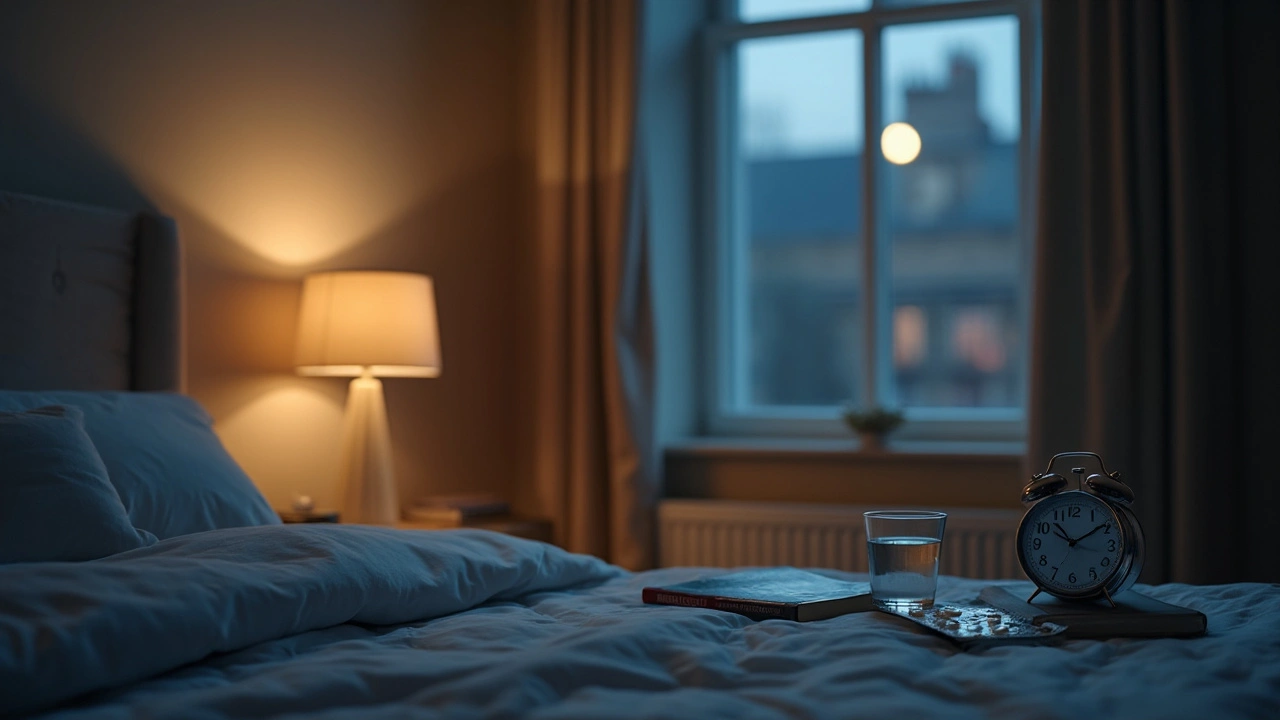Sleep Tips You Can Try Tonight
Want to fall asleep faster and wake up less groggy? Small changes often make the biggest difference. Below are clear, practical sleep tips you can test right away — no expensive gear or weird rituals required.
Build a short, predictable wind-down
Go to bed and wake up at roughly the same times every day, even on weekends. Your body likes routine. Start a 20–30 minute wind-down before bed: dim lights, turn off bright screens, and do something calm — read a paper book, stretch lightly, or write two quick to-dos for tomorrow so your mind can let go. Keep the wind-down short and consistent so your brain learns this is the cue for sleep.
Limit stimulating activities in that window. No heavy work, intense exercise, or upsetting news. If you scroll social apps, set an alarm to stop — one last check is fine, endless scrolling is not.
Tune your sleep environment
Make the bedroom cozy for sleep. Aim for cool (around 60–67°F / 15–19°C), dark, and quiet. Blackout curtains and a fan or white-noise app help with light and noise. If you wake from drafts or warmth, try breathable sheets and a lighter blanket instead of cranking the thermostat.
Only use your bed for sleep and sex. Working or watching TV in bed teaches your brain to stay alert there. If you can’t sleep after 20 minutes, get up, move to another room, do a low-energy activity, and return when you feel sleepy.
Watch what you consume. Avoid caffeine after early afternoon — coffee, some teas, dark chocolate, and many sodas can interfere with deep sleep. Alcohol may help you fall asleep but fragments sleep later in the night. Heavy meals right before bed can cause discomfort; aim to finish eating 2–3 hours before bedtime.
Use light to your advantage. Get sunlight within an hour of waking to set your internal clock. In the evening, cut blue light from screens or use a warm filter. A dim bedside lamp beats overhead lighting for that last hour.
Try simple techniques for faster sleep. Slow breathing (4–6 breaths per minute), progressive muscle relaxation, or a 10-minute guided sleep meditation can calm an active mind. If you wake at night, resist checking the time — that ramps stress and keeps you awake.
Exercise regularly, but finish intense workouts at least a few hours before bed. Daytime activity improves sleep quality; morning walks give extra benefit by exposing you to daylight.
If poor sleep persists for several weeks despite trying these tips, see a healthcare provider. Conditions like sleep apnea, restless legs, or anxiety need targeted care. Also talk to your doctor before taking sleep meds or supplements — they can help short-term but aren’t a long-term fix.
Try one or two changes this week. Track what helps and what doesn’t. Small, consistent tweaks add up — and better sleep is possible without drama.

- Apr 29, 2025
- SkyCaddie Fixer
- 13 Comments
How to Sleep Better While Taking Atorvastatin: Science-Backed Tips for Restful Nights
Struggling to sleep well while taking atorvastatin? You're not alone. This article unpacks the connection between this common cholesterol medication and sleep trouble, while sharing practical, science-backed sleep hygiene strategies you can use tonight. We dig deep into why atorvastatin might affect sleep, what real people experience, and what you can do about it. Discover night-time routines, bedroom tweaks, and clever lifestyle fixes that support restful nights—especially if you're dealing with statin-related insomnia.
